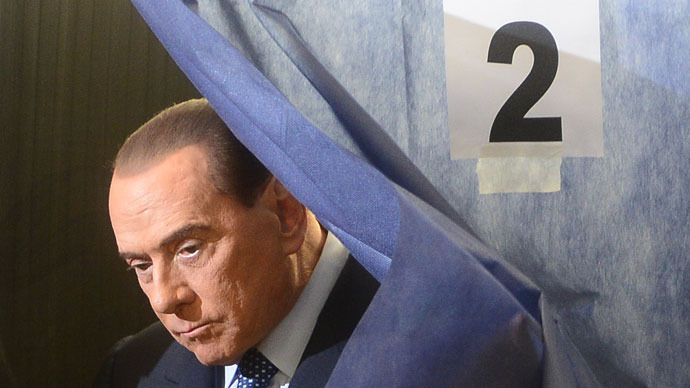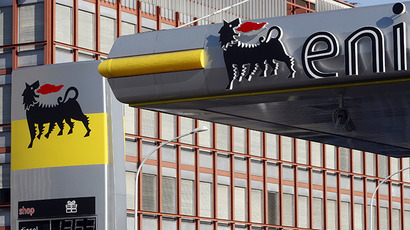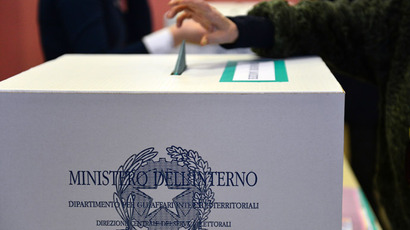Italian election cliffhanger raises concerns over eurozone

Experts fear a split parliament in the eurozone's third-largest economy is likely to paralyze any new government and potentially reignite the eurozone debt crisis.
Pier Luigi Bersani’s center-left coalition is poised to gain a
majority of seats in the Italian Parliament's lower house, but the
upper house will be deadlocked, the Interior Ministry said on
Tuesday after 99.9% of the votes had been counted.
"The situation looks ungovernable, and that's the worst
outcome you can imagine," said Guido Rosa, president of the
Italian Foreign Bank Association, Wall Street Journal
reports.
The political gridlock sent markets into a downward frenzy on
Monday, as many experts fear that paralysis in Italy will hinder
economic recovery; the market recorded its biggest drop in more
than three months.
Asian stocks were among the hardest hit: Japan’s Sony Corp
slipped 3.5%, the Nikkei fell 2.2% and Global Logistics Properties
fell 6.9% in Singapore. Asian markets have relied heavily on the
European recovery, as much of their revenue is based in the
eurozone.
"It revives memories of risks in the eurozone," said Yuji
Saito from Credit Agricole in Tokyo told Reuters. "I doubt that
the situation will turn into a disaster, but we need to carefully
monitor developments.”
Wall Street hit a four-month record low, the S&P dipped
below 1,500 and the Dow slumped more than 200 points. US banks also
reacted to the risk of political uncertainty in Italy: Morgan
Stanley fell 6.6%, Citigroup declined 3.8%, Bank of America dropped
3.6% and JP Morgan slid 2.5%.
The euro dropped below 1.31 to the dollar, a six-week low for the currency.
The situation is likely to come down over the course of the next couple of weeks and there is no reason to panic, Nick Parsons, Head of Research in UK & Europe at the National Australia Bank in London told RT Business.
“We don’t believe there is any existential threat to the
European single currency area. Yes, there are going to be a few
wobbles, yes, there is a little bit of uncertainty, but Italy is by
no means the worst economy in euroland and its certainly not about
to leave the euro whatever the various claims of different
political spokespeople.”
Investors, analysts, hedge funds and foreign markets are all
closely watching Italy’s next political move. If the eurozone’s
third-largest economy goes rogue and refuses to cooperate with the
recovery plan, it could upend global markets.
Both Berlusconi and Grillo ran anti-euro platforms, railing
against ‘Brussels bureaucrats’ and ‘dictates from Berlin.’ Grillo
has even suggested Italy ditch the euro currency. Bersani vowed to
work with the eurozone to reconcile Rome’s €2-trillion
debt.
“I think the worst is yet to come for Italy,” said Gianfranco Fini, a former foreign minister, and political opponent of Monti.













